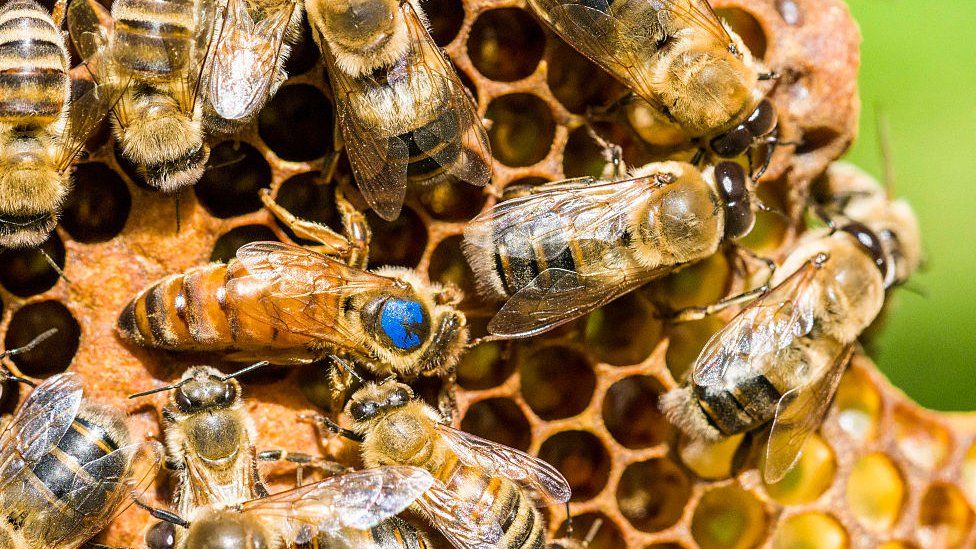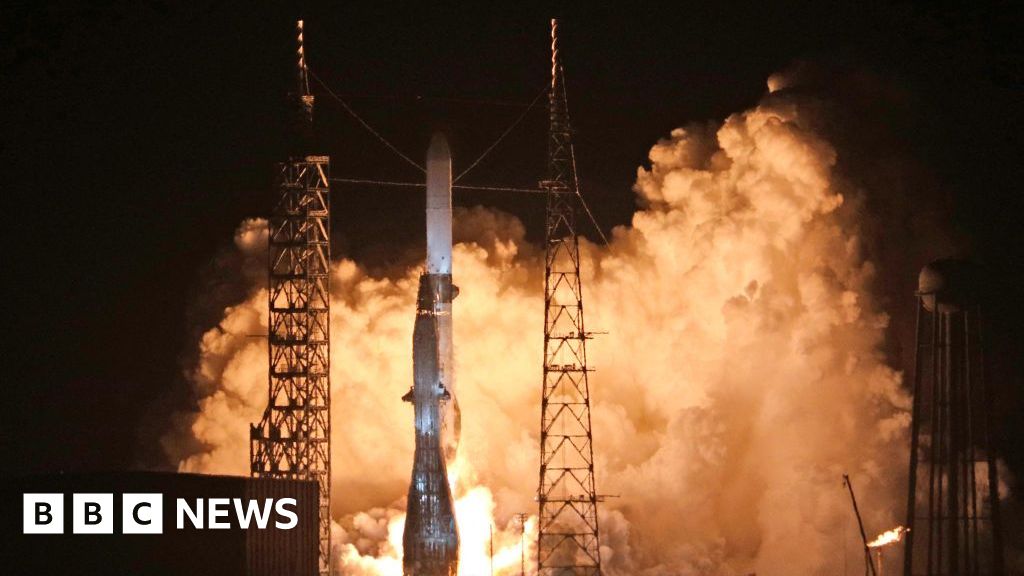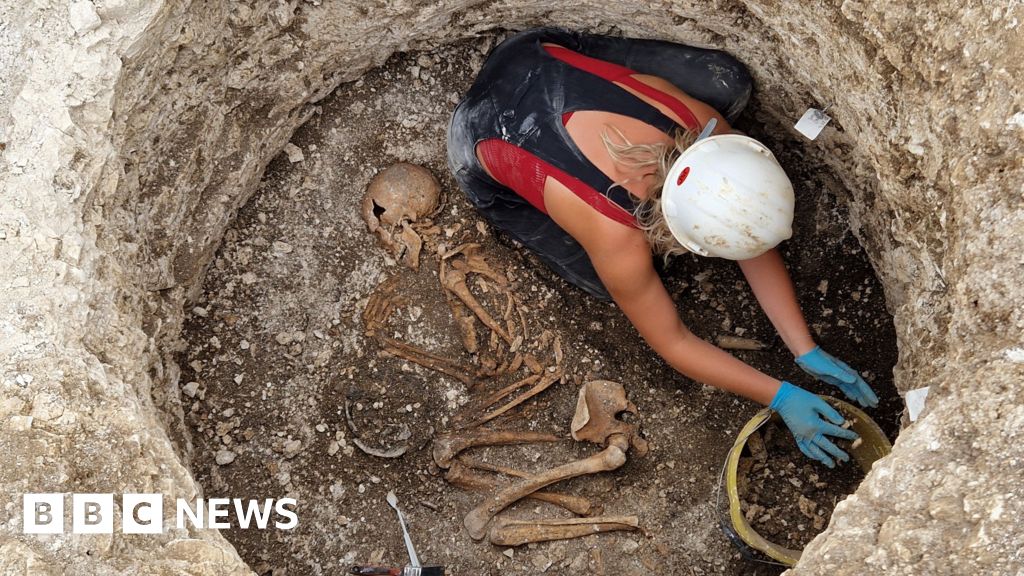ARTICLE AD BOX
 Image source, Getty Images
Image source, Getty Images
By Madeline Halpert
BBC News, New York
The US has approved use of the world's first vaccine for honey bees.
It was engineered to prevent fatalities from American foulbrood disease, a condition known to weaken colonies by attacking bee larvae.
The US Department of Agriculture (USDA) approved a conditional license for the vaccine this week, according to the biotech firm behind its development.
As pollinators, bees play a critical role in many aspects of the ecosystem.
The vaccine could serve as a "breakthrough in protecting honey bees", Dalan Animal Health CEO Annette Kleiser said in a statement.
It works by introducing an inactive version of the bacteria which causes the disease into the royal jelly fed to the queen, whose larvae then gain immunity.
The US has seen annual reductions in honey bee colonies since 2006, according to the USDA.
The USDA says many, sometimes overlapping, factors threaten honey bee health, including parasites, pests and disease, as well as a phenomenon called Colony Collapse Disorder, which occurs when worker bees abandon a hive and leave behind the queen.
Pollinators such as bees, birds and bats are responsible for about a third of the world's crop production, according to the United Nation's Food and Agricultural Organization.
American foulbrood disease poses a challenge for beekeepers as it is highly contagious and has no cure. The only treatment method requires burning the colony of infected bees along with the hives and equipment and treating nearby colonies with antibiotics.
The new vaccine contains an inactive version of the bacteria that causes American foulbrood disease, Paenibacillus larvae, according to Dalan Animal health.
The bacteria is incorporated into royal jelly feed given by worker bees to the queen bee, which then ingests the feed and keeps some of the vaccine in her ovaries, according to the biotech firm, which specialises in insect health and immunology.
It says this gives bee larvae immunity to the disease as they hatch and reduces death from the illness.
The new vaccine could mark an "exciting step forward for beekeepers", California State Beekeepers Association board member Trevor Tauzer said in a statement.
"If we can prevent an infection in our hives, we can avoid costly treatments and focus our energy on other important elements of keeping our bees healthy," he said.
Dalan plans to distribute the vaccine "on a limited basis" to commercial beekeepers and said the product would probably be available for purchase in the US this year.

 2 years ago
54
2 years ago
54








 English (US) ·
English (US) ·